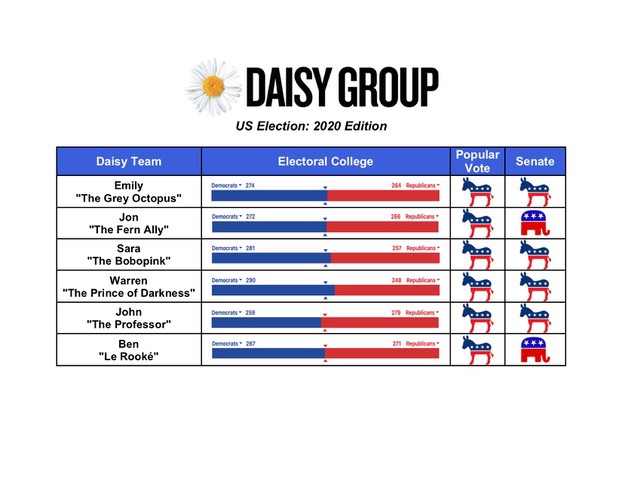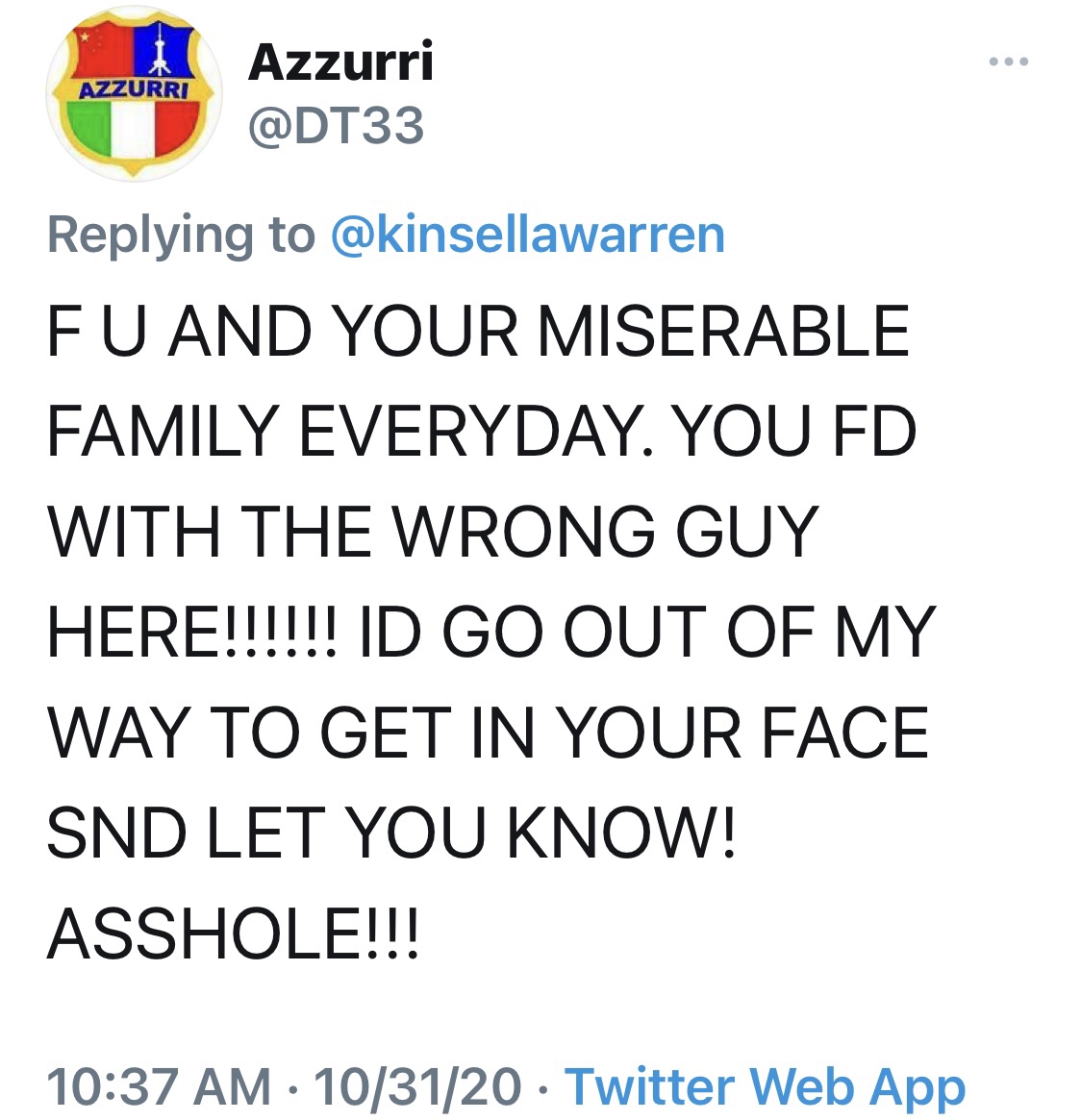They’ll tell you.
When you talk to American voters – and this writer recently has, hundreds of times, from New Hampshire to Florida to California – you’ll be told three things, a lot.
Young to old, East to West, Right to Left, three themes emerge. It’s pretty consistent.
One, they voted early.
We Democratic Party volunteers made lots of calls to lots Americans who had picked up an absentee ballot down at the town hall, or who had voted early. Many, many Americans chose to vote this way.
By the final weekend, more than 90 million Americans had voted in advance. That’s 70 per cent of the total number of all voters in 2016. And that doesn’t merely break records – it is extraordinary. It is unprecedented.
And that kind of early turnout is never, ever good for the incumbent.
In the so-called battleground states – the ones whose electoral college votes will determine who gets to be president, and which party controls Congress – more than half of the number who voted in 2016 did so early in 2020. Those states include Texas, Georgia, North Carolina, Nevada, Florida, Arizona, Colorado, Wisconsin, Maine, Iowa, Michigan, Minnesota and Nebraska.
States that Donald Trump dominated in last time. States he desperately needs to keep to win re-election.
Democratic Party volunteers weren’t trained to inquire why people voted early. But the subject would sometimes come up. Some would tell us they were anxious about catching the virus, and early voting seemed a lot safer.
But some would say they feared that Donald Trump would try and prevent Democrats from voting. That he’d scheme to suppress the vote.
“I already voted Democrat up and down the ticket,” one New Hampshire man said to me. “No dirty tricks. We need to get rid of Trump.”
And that points to another thing we discovered when talking to American voters: very, very few were undecided.
They had their minds made up, and long ago, too. The undecided vote – the “gettable” vote, which is really all that matters in most elections, in the United States or any other Western democracy – was smaller in 2020 than ever before.
Some political scientists call this group “volatile voters” – electors whose allegiance moves around, and who tend to be unenthusiastic about their political choices in every election. In 2016, about 20 per cent of likely voters were undecided (or volatile).
In 2020, it’s less than half that number. In some states, it’s has been as little as five per cent.
Why so small? Because these voters aren’t undecided anymore. They’ve made their mind up: a New York Times/Siena poll released this week found that 54 per cent of volatile/undecided voters had an unfavorable view of Trump. He has become the ballot question.
It’s pretty hard to win re-election in 2020 when, like Trump, you’ve lost the undecideds – the ones who overwhelmingly broke your way in 2016. Because Trump was considered the lesser of two evils last time.
Not this time. On the phone, over and over, those we contacted rarely said they were undecided. When they were prepared to say how they voted, or how they would vote, they were clear: they were going Democrat, up and down the ticket.
They were doing that, they said, because they wanted Trump out, period. Not because they were seized with a burning love for Joe Biden.
“Go get Trump, honey,” Bessie, a Florida voter, said to me. “Keep doing what you’re doing and get him out!”
And, by any objective measurement, Donald Trump should be thrown out. In poll after poll, in every electoral college analysis – in every phone call we Democratic volunteers made to every eligible voter we could find – we found highly-motivated, clearly-decided voters who want Trump gone.
That, then, is the third and final reason he should lose: Americans are sick of him. They are sick of his face.
He used Twitter to be on their devices, 24/7. He used the White House as a reality-show stage. He used the presidency as a prop. He was ubiquitous – the most-seen, most-read, most-discussed President in the history of the United States of America.
And, somewhere along the way, Americans – including lots of undecideds and not a few Republicans – just got fed up. He had exhausted them. He had been a psychodrama without end.
So, now, they want it to end. That was the third thing we learned: American voters have had their lives disrupted quite enough, thank you very much.
Economically, socially, culturally, the pandemic has disrupted everything. They don’t need a disruptor in the White House, too.
That’s the third thing, the determining factor. They want things to calm down, a bit. They want normal again. They want their lives back. They want Joe Biden is selling: peace and quiet.
Unless he figures out some way to cheat his way back into office – aided and abetted by the courts he’s stacked for four years – Donald Trump is a goner. He’s toast.
And that’s not just because the polls and the pundits say so.
That’s what Americans are saying. You just have to pick up the phone and call them.
They’ll tell you.
Comments (16)



